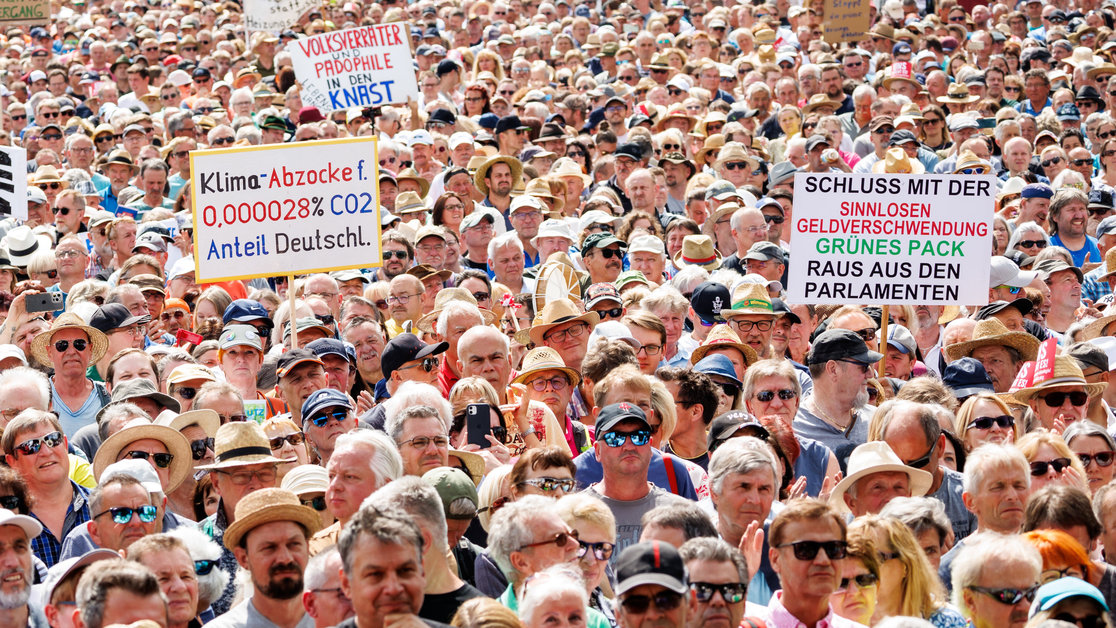Incitement to Civil War in Germany
Concepts de base
The author argues that a powerful minority elite group is blamed for the majority of Germans' problems, fueling resentment and division in society. The narrative of an oppressive elite versus the common people is used to incite a sense of rebellion and resistance.
Résumé
The content delves into the societal divide between a perceived elite minority and the common people in Germany. It highlights how blame is shifted towards this elite group for various issues faced by the majority, leading to feelings of resentment and defiance. The narrative portrays a struggle between those who feel oppressed by the elite's influence and those who seek to reclaim their autonomy and freedom. The distinction between urban elites and rural dwellers, as well as the rejection of abstract concepts like climate change, are emphasized as triggers for societal unrest. The rhetoric employed by politicians and media figures is criticized for its authoritarian undertones, framing dissent as anti-democratic. Overall, the content explores the construction of a powerful enemy figure to mobilize resistance against perceived oppression.
Traduire la source
Vers une autre langue
Générer une carte mentale
à partir du contenu source
Voir la source
zeitung.faz.net
Anstiftung zum Bürgerkrieg
Stats
A third of voters in Saxony lean towards AfD.
Mention of "Elite," "Elfenbeinturm," "Kreuzberg" as derogatory terms.
Reference to Andreas Reckwitz's classification of society into new middle class and other segments.
Hubert Aiwanger's mention of "normal people" reclaiming democracy.
Friedrich Merz's differentiation between Germany and Kreuzberg.
Newsletter from "Neue Zürcher Zeitung" highlighting concerns of "Normalbürger."
Citations
"No one wants civil war. But why does it often sound like it?"
"The freedom of Germans is defended at the gas station and meat counter."
Questions plus approfondies
What role does media play in perpetuating narratives that fuel societal divisions?
The media plays a significant role in perpetuating narratives that fuel societal divisions by framing issues in a way that polarizes opinions and reinforces existing biases. Through selective reporting, sensationalism, and the amplification of extreme viewpoints, the media can create an "us vs. them" mentality among different segments of society. This can lead to the demonization of certain groups or individuals, further deepening societal rifts.
How can constructive dialogue be fostered between different segments of society with opposing views?
Constructive dialogue between different segments of society with opposing views can be fostered through active listening, empathy, and a willingness to engage in respectful discourse. It is essential to approach conversations with an open mind, seeking to understand the perspectives and concerns of others without immediately dismissing them. Creating safe spaces for dialogue where all voices are heard and respected is crucial for building bridges across divides.
In what ways can individuals distinguish genuine concerns from manipulated narratives in today's political landscape?
Individuals can distinguish genuine concerns from manipulated narratives in today's political landscape by critically evaluating sources of information, fact-checking claims before accepting them as truth, and being aware of potential biases present in news coverage or social media posts. It is important to seek out diverse perspectives on an issue and consider multiple sources before forming an opinion. Additionally, paying attention to language used (such as inflammatory rhetoric or fear-mongering) and recognizing patterns of misinformation or propaganda can help individuals discern between genuine concerns and manipulated narratives.

